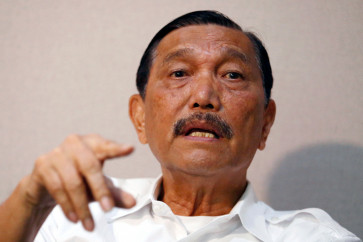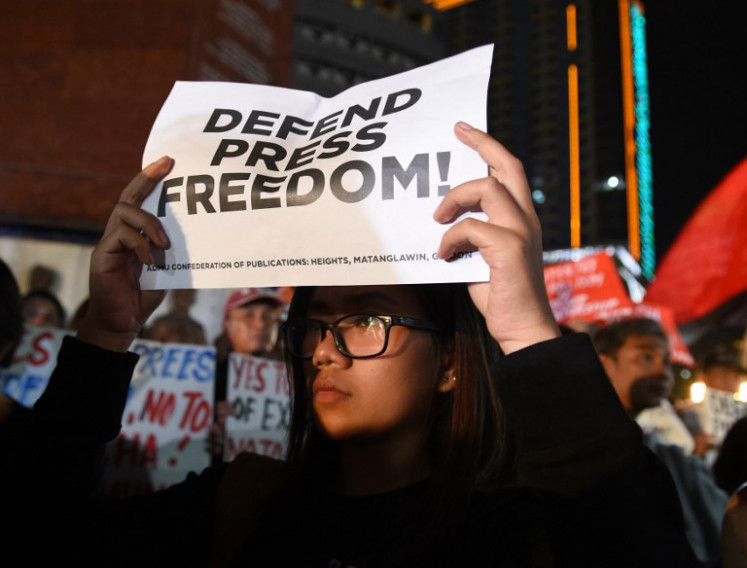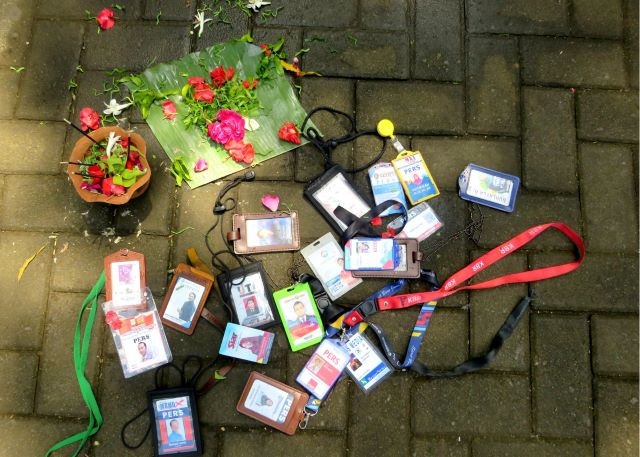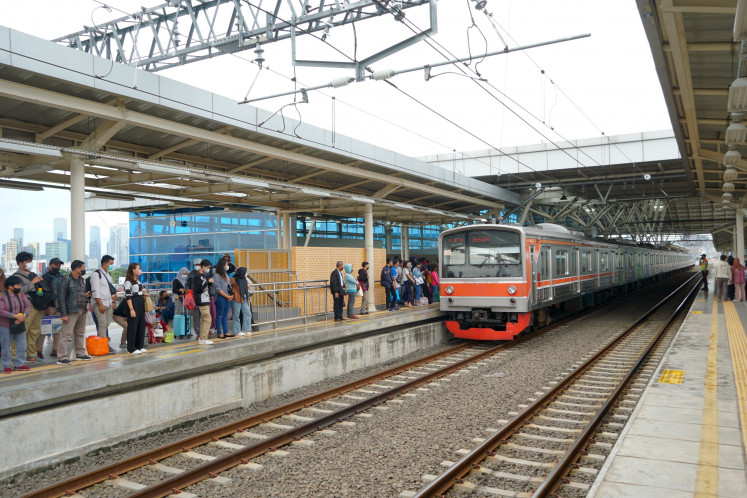Nat'l interest and Indonesian diplomacy
Speaking at the Foreign Affairs Ministry*s 63rd anniversary celebration at the ministry recently, President Susilo Bambang Yudhoyono said, "In facing the problems and challenges before us, we always have to be rational and have a realistic awareness of our own capabilities
Change Size

Speaking at the Foreign Affairs Ministry*s 63rd anniversary celebration at the ministry recently, President Susilo Bambang Yudhoyono said, "In facing the problems and challenges before us, we always have to be rational and have a realistic awareness of our own capabilities."
His message is clear: Indonesia needs to have certain level of capacity to be able to respond promptly to fundamental changes in world politics.
A host of modern threats, from terrorism to illegal trafficking of people, money laundering and arms smuggling, have gone global. They ignore national borders and thus undermine the well-being of our people and the country's security. It is against such a background Susilo then said, to confront present challenges, national interest should be given top priority, even as Indonesia continued to care about global problems.
I think it is worthwhile to examine what exactly Yudhoyono means by "national interest" in the face of global challenges.
National interest has two meanings. National interest in the context of international politics refers to the interests of a nation-state in a global arena. This concept can be contrasted with group interests, international interests or global interests. National interest can also mean state interest -- the highest level in domestic politics -- and refers to governmental interest or a government which represents peoples' interests.
The President is aware Indonesia needs to keep moving toward becoming a fully democratic country. The national interest in that context referred to domestic politics. Sound democracy is not only necessary for Indonesia but imperative if it wishes to be seen as serious in its reform efforts.
In another speech, Yudhoyono said Indonesia needed to maintain its own national interest, sovereignty and territorial integrity while collaborating internationally. National interest in this instance is in the context of international politics.
The President acknowledged, in a rapidly changing and interdependent world, the separation of national and international affairs is becoming blurred if not problematic. A more globalized world is bound to cause fragmentation on the one hand and integration on the other, either on a national or an international level. Judging from current developments, fragmentation appears to be the dominant trend in today's world politics.
It is not clear, however, whether the President equates national interest with the interests of the state. A survey of the literature on the subject reveals some scholars have even confused national interest with state interest. They often misconstrue the term to only refer to international politics. Others believe national interest is about class, namely, national interest is the interest of the ruling class. They reason the state is invented by the governing class to promote their self-interests.
This, hopefully, is not the way the President sees national interest in the context of Indonesia. Given the continued reform here, national interest has become the fundamental basis for the country's foreign policy for international and domestic reasons. It is not only that. Indonesia's foreign policy should convey the message our national interest on the international stage accounts for the interests of the whole nation-state -- both the state, the government, and the nation, the people.
Perhaps this is why the President called on the country's diplomats to always promote Indonesia's national interest and uphold rationality in the performance of their duties.
However, to perform such a role effectively, at regional or global levels, our diplomats should do the following. First, manage the country's external relations in a way which reflects the current state of Indonesia. The policies executed abroad should see to "intermestic" issues, those that merge international and domestic interests. Second, anticipate problems the country will face down the road, making investments which will pay greater benefits or prevent greater losses in the future.
Our diplomats should realize the country must not change its commitment, namely to continue as part of the international collaboration to establish a more secure and stable global environment, though not, of course, at the expense of our basic national interest.
Our diplomats must know our foreign policy challenges do not arise in neat five-year cycles. Here are some "construction projects" for our future diplomats which transcend domestic and international interests.
First, building an undivided and more democratic, stable and prosperous Indonesia.
Second, building a stronger shield against the forces of destruction; the first two fall within the category of the domestic aspects of national interest.
Third, building a regional defense mechanism -- not a military one -- as a platform to guard and guide the agenda of the ASEAN community.
Fourth, building international coalitions to take on challenges which derive from transnational security issues and to promote multilateralism.
A more active and visionary foreign policy, as well as the continuity and coherence of diplomatic efforts, would be a major contributing factor in enabling the country to enhance its independence, sovereignty and international bargaining position.
The writer is director of the Institute for Defense and Security Studies. He is also a lecturer at the International Relations Graduate Studies Program, Faculty of Social and Political Science, University of Indonesia, Jakarta. He can be reached at bandoro@cbn.net.id









